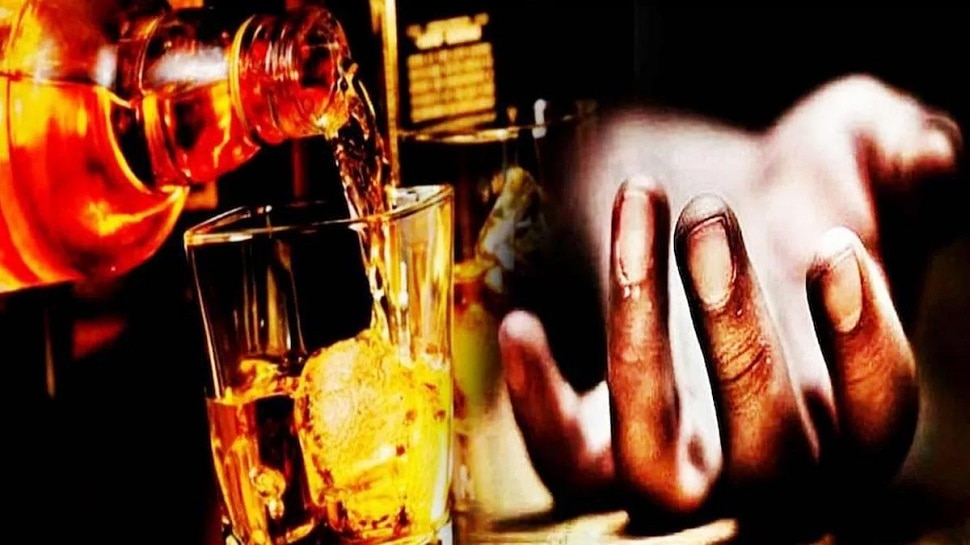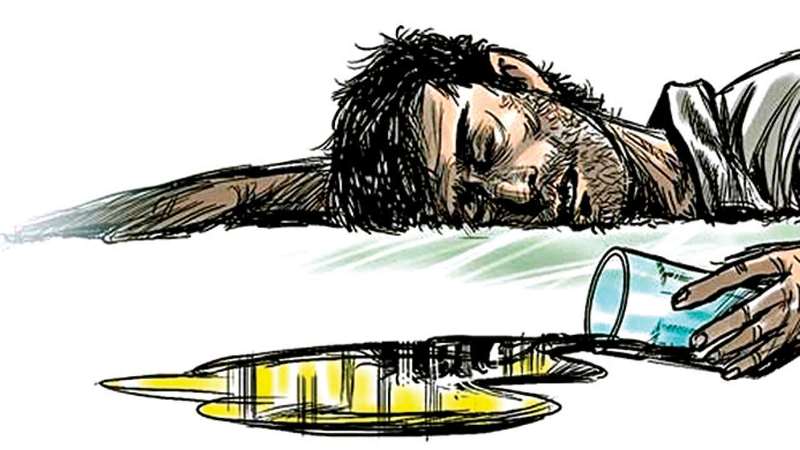Haryana Hooch tragedy: 18 persons die after drinking spurious liquor

Haryana Hooch tragedy: 18 persons die after drinking spurious liquor
The tragic incident of eighteen people losing their lives after consuming spurious liquor in Haryana has sparked criticism from the opposition, with the blame directed towards the Bharatiya Janata Party-Jannayak Janata Party alliance government. The fatalities occurred in several villages, including Mandebari, Panjeto Ka Majra, Phoosgarh, and Saran, spanning across Yamunanagar and neighboring Ambala district.
The gravity of the situation is emphasized by the fact that these deaths are attributed to the consumption of illicit liquor, shedding light on the challenges of regulating and preventing the circulation of counterfeit or harmful substances. This incident not only raises concerns about public safety but also prompts questions about the effectiveness of measures in place to curb the production and distribution of illegal alcohol. The opposition’s scrutiny of the government’s role in ensuring the well-being of citizens, particularly regarding such critical matters, is likely to fuel a broader conversation on public health and safety measures.
The troubling situation involving deaths from consuming spurious liquor in Haryana unfolded with the first reported fatality on Wednesday, as shared by Yamunanagar Superintendent of Police Ganga Ram Punia. The initial incident prompted a police investigation after receiving information about a youth’s death due to alcohol consumption. Subsequently, the gravity of the situation escalated, with a total of eighteen reported deaths.
The toll included six fatalities within the last 24 hours in Yamunanagar and an earlier count of ten people succumbing to the effects of the suspicious liquor. Additionally, two deaths were reported in the neighboring Ambala district. These developments underscore the urgency of addressing the issue and conducting thorough investigations into the source and distribution of the illicit alcohol to prevent further harm to the public.

The escalating death toll and the geographical spread of the incidents raise critical questions about the need for robust measures to curb the production and circulation of harmful substances in the region.
In response to the illicit liquor-related deaths in Haryana, the police have taken swift action by arresting seven suspects and initiating raids to apprehend more individuals involved in the production and distribution of the spurious alcohol. The authorities have made significant seizures, including 200 crates of counterfeit liquor manufactured in an abandoned factory. The confiscated items also include 14 empty drums and materials used in the production of the illicit liquor. These measures are part of the ongoing efforts to dismantle the illegal network responsible for the tragic deaths.

To address the severity of the situation, the police have registered a case under various sections of the Indian Penal Code, including Sections 308 (attempt to commit culpable homicide), 302 (murder), and 120B (criminal conspiracy). Additionally, provisions of the Punjab Excise (Haryana Amendment Bill), the Punjab Excise Act, and Copyright Acts have been invoked. This comprehensive legal approach reflects the authorities’ commitment to thoroughly investigate the case, bring those responsible to justice, and prevent future incidents of this nature. The involvement of multiple legal provisions underscores the seriousness with which the authorities are treating the matter and their determination to ensure accountability for the tragic consequences of consuming spurious liquor.
The illicit liquor-related deaths in Haryana have become a focal point for political criticism, with the opposition, particularly Congress leader and Former CM Bhupinder Singh Hooda, targeting the Bharatiya Janata Party-Jannayak Janata Party alliance government over the tragic incidents. Hooda, in a tweet, accused the government of allowing the proliferation of a “black drug trade” under its patronage. He specifically mentioned the issues of poisonous liquor, “chitta” (a term often associated with a synthetic drug), and synthetic drugs, asserting that these substances are continuously causing harm and fatalities among the people of the state.
This public condemnation on social media suggests that the opposition is using the situation to underscore perceived governance failures, emphasizing concerns about the rising influence of illicit substances and the government’s role in addressing these challenges. The use of strong language, such as “poisonous liquor” and “black drug trade,” amplifies the gravity of the accusations and reflects the intensity of the political discourse surrounding the issue. As the situation develops, it is likely that this critique will contribute to broader discussions on public safety, law enforcement, and the government’s responsibility in curbing the circulation of harmful substances.
The Aam Aadmi Party (AAP) state chief and Rajya Sabha MP, Sushil Gupta, have made serious allegations, claiming that the rampant sale of illegal liquor is prevalent on every street. Gupta further asserted that the illicit trade extends to the open and brazen selling of spurious liquor in branded bottles across the state. These accusations suggest a pervasive and bold presence of unlawful liquor activities, raising concerns about the overall enforcement and regulatory mechanisms in place to curb such illicit practices.




